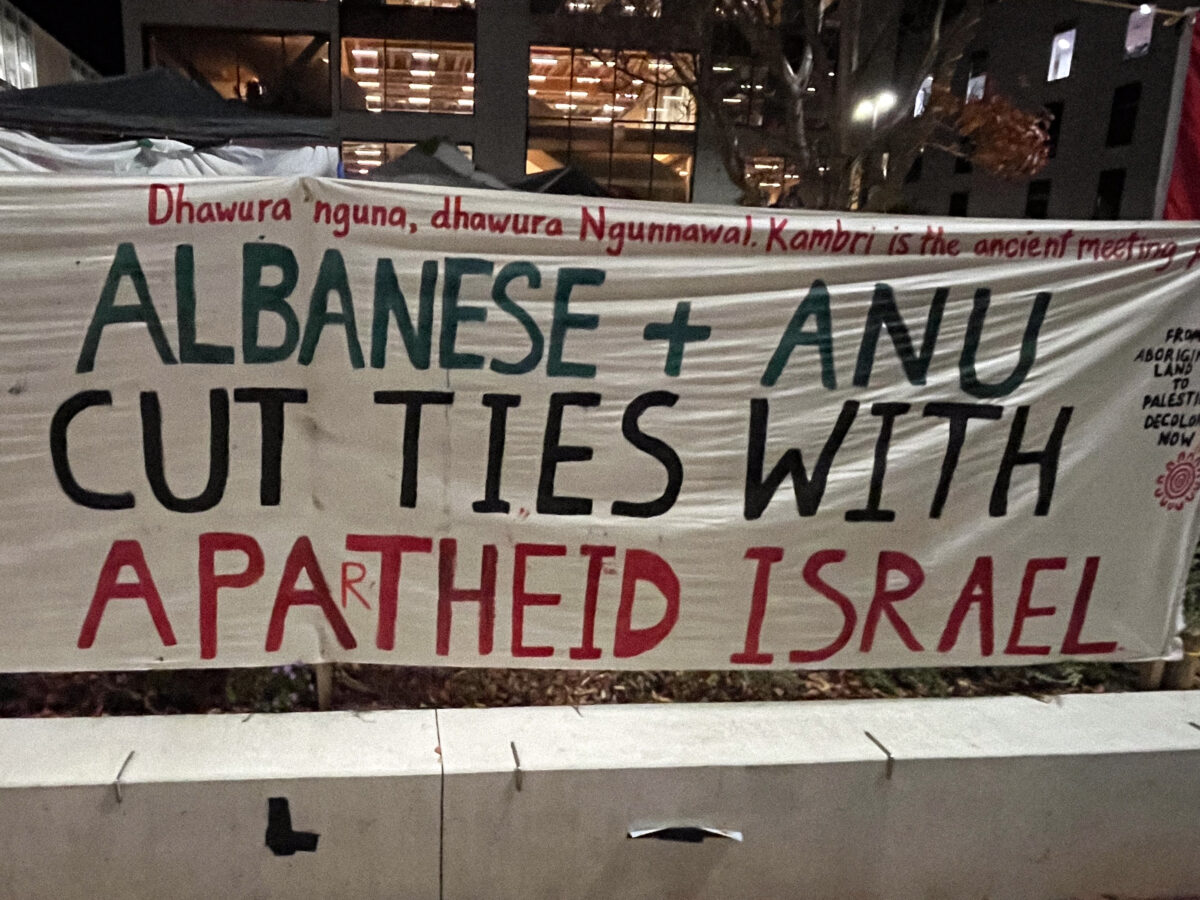This year, alongside voting on who should run ANUSA, ANU students will also decide whether the ANU should divest from the weapons industry.
After a year marked by protests and discussion over the ANU’s investments in weapons manufacturers, not only has this issue become the centre of four of the five tickets, but will be the focus of a referendum to happen alongside election voting.
When voting for their preferred ANUSA candidates, ANU students will also be asked to vote either YES or NO to the following question:
“Do you think ANU should withdraw all current investments in the weapons industry and make no further investments into the weapons industry?”
The motion for the referendum was moved by Serve! For ANUSA’s Welfare Officer candidate Harriet Ryder at the second Ordinary General Meeting, earlier this semester.
The ANU maintains close ties with a number of weapons corporations whose products have been used by Israel in Palestine, during which it is estimated that tens of thousands of civilians have been killed.
As of the beginning of 2024, the ANU had a scholarship worth $18,000 with Northrop Grumman, an aerospace company, which is open to penultimate and final year computing students.
Similar opportunities offered by the university to students include Cyber Analyst Intern positions at Lockheed Martin, as well as various other opportunities with the Australian Department of Defence to work on projects related to AUKUS and other initiatives. The ANU also has significant investments in arms manufacturers, totalling close to $500,000 as of October 2023.
In March this year, such partnerships led to the ANU Environment Collective launching a petition demanding that the ANU “divest from all weapons companies”.
Earlier this year, following around 900 submissions to the Socially Responsible Investment (SRI) policy consultations, the ANU announced that it would be withdrawing its investments in “controversial weapons manufacturers”. Controversial weapons, under the University’s definition includes, anti-personnel mines, cluster munitions, chemical weapons, biological weapons and nuclear weapons outside of the Treaty on the Non-Proliferation of Nuclear Weapons.
However, this leaves multiple weapons out of the list, whilst also leaving room for the ANU to engage in academic partnerships with weapons manufacturers.
The upcoming referendum may be seen as a response to the university’s ambiguity on the topic. Student political groups such as Socialist Alternative (SAlt) have rejected ANU’s stance as insufficient.
All election tickets, Change your ANUSA, Serve! For ANUSA, Left Action – Free Palestine, and Globalise the Resistance for Palestine, except the Liberal-aligned Progress, support the YES vote.
Change’s website calls for the ANU to “not stop at partial divestment”. A common theme of displeasure at the ANU being “complicit in genocide”, as Globalise the Resistance for Palestine claims, runs throughout both Palestine-aligned tickets.
In communications with Woroni, Progress justified its support for the NO side, saying that though they do not support violence, “we believe that lasting peace is best supported when liberal democracies have access to effective military resources.”
Regardless of whether the referendum succeeds, the ANU is not obligated to comply with its results. However, a majority of YES voters will allow ANUSA and the Undergraduate and Postgraduate Members on ANU Council, to demonstrate to the ANU that there is significant concern from the student body in regards to the University’s investments.
We acknowledge the Ngunnawal and Ngambri people, who are the Traditional Custodians of the land on which Woroni, Woroni Radio and Woroni TV are created, edited, published, printed and distributed. We pay our respects to Elders past and present. We acknowledge that the name Woroni was taken from the Wadi Wadi Nation without permission, and we are striving to do better for future reconciliation.
